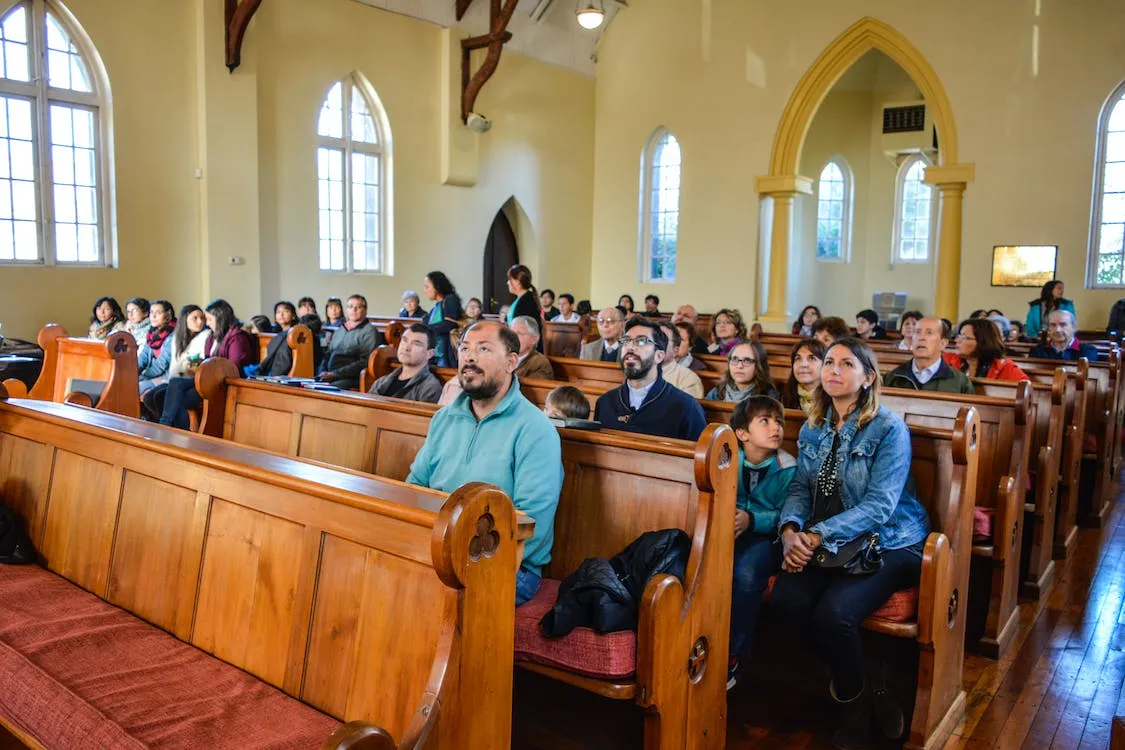Church is much more than just a building with people who come to worship. There is a deeper purpose behind it that has roots dating back to history. Understanding the significance of the church in building a community, connecting with God, and contributing to society is crucial. In this blog post, we’ll explore the biblical purpose of the church, the critical role it plays in our lives, and so much more. Keep reading to learn more about the importance of the church in our lives.
The Historical Roots of the Church’s Purpose
The church has been a significant institution throughout history, influencing cultures and societies for centuries. Its roots can be traced back to the time of Jesus Christ, who established the first church with his disciples. Over time, the church evolved into a powerful force, shaping the way we think about spirituality, morality, and community.

At first, the church’s purpose was centered around spreading the teachings of Jesus Christ and creating a spiritual community for believers. It was a place where people could gather to worship, pray, and fellowship together. But as the church grew in size and power, its mission expanded to include caring for the poor, promoting justice, and serving as a voice for the marginalized.
During the medieval period, the church became a dominant force in Europe, wielding political and economic power alongside its religious influence. The Catholic Church, in particular, took on the role of a protector of the faith and a mediator between God and man. The Protestant Reformation in the 16th century challenged many of the church’s practices and beliefs, leading to a schism that ultimately created multiple denominations within Christianity.

Today, the church’s purpose remains similar to its historical roots. It continues to serve as a place of worship, community, and service for believers. However, the modern church has also faced criticism for its position on social issues and its role in shaping public policy. Despite this, it remains a significant force in many societies, with millions of people finding solace, guidance, and purpose within its walls.
To summarize, the church’s purpose can be traced back to its roots in the teachings of Jesus Christ. Over time, it has evolved to include caring for the poor, promoting justice, and serving as a voice for the marginalized. While its influence and role in society have changed over the centuries, the church remains a valuable institution for believers seeking spiritual connection and community.
List of SEO Keywords: church purpose, importance of church, church mission, church vision, church objectives, church goals, role of the church, church significance, spiritual purpose of church, purpose-driven church, biblical purpose of church, church community, church fellowship, church outreach, church leadership, church ministry, church service, church worship, church teachings, church values, church beliefs, church identity, church history, church culture, church tradition, church unity, church family, church growth, church impact.
Understanding the Biblical Purpose of the Church
In order to truly understand the purpose and significance of the church, it is important to first examine its roots in the Bible. The church is not merely a social institution or a gathering of individuals with similar beliefs, but rather it is a spiritual community with a specific purpose.
The primary purpose of the church, according to the Bible, is to glorify God. This can be seen in Ephesians 3:21, which states that the church exists “to him be glory in the church and in Christ Jesus throughout all generations, forever and ever.” Additionally, the church is called to worship God, which includes singing praises, prayer, and the preaching of God’s word.
Another important purpose of the church is to disciple believers and help them to grow in their faith. This is accomplished through teaching, fellowship, and the sharing of spiritual gifts. The church is also called to evangelize the world, sharing the message of salvation in Jesus Christ with those who have not yet heard it.
Furthermore, the church is designed to be a source of support and encouragement for its members. This includes providing emotional support during difficult times, offering practical help to those in need, and creating a sense of community and belonging.
In addition to these purposes, the church has specific goals and objectives that are aligned with its mission and vision. These might include building a strong culture of prayer, creating opportunities for service and outreach, and promoting spiritual growth through small groups or discipleship programs.
Overall, the biblical purpose of the church emphasizes its role as a spiritual community that exists to glorify God, disciple believers, evangelize the world, and support its members. By understanding and embracing these purposes, we can fully appreciate the significance of the church in our lives and in the wider community.
The Significance of Church in Building a Community

As a young person, you might struggle to find a place where you can belong, grow, and connect with others. The church can offer a safe haven where you will be welcomed with open arms, encouraged to be yourself, and supported by a community of like-minded believers. In this section, we will explore the significance of the church in building a community.
It provides a sense of belonging
The church is a community of believers that share a common faith and values. Being part of a church gives you a sense of belonging and acceptance, which can be difficult to find elsewhere. It provides a group of people who will love and support you, who will be there for you through thick and thin. This sense of belonging is essential for your sense of worth and identity.It fosters relationships
In church, you will find people who are genuinely interested in who you are and what you care about. This can foster meaningful relationships and friendships that can last a lifetime. You can find people who share your interests, passions, and even struggles and build safe spaces for vulnerability and empathy.It promotes a culture of service
Churches not only serve their own members but also the wider community. They often provide outreach programs, charity events, and other opportunities to serve others. Being part of a church can inspire and empower you to give back to your community and make a positive impact on the world.It offers support and accountability
The church is a community where you can receive support, guidance, and accountability. You can find mentors, counselors, and spiritual leaders who will help you navigate life’s challenges, offer advice, and pray for you. Church community can also be empowering for accountability ensuring that we are encouraged to grow and develop in our faith.It encourages personal growth and development
Being part of a church community provides opportunities for personal growth and development. Churches often offer Bible studies, prayer groups, and other programs that can help you deepen your faith, strengthen your character, and grow as a person. Church community can also provide a platform for learning and sharing about different traditions and practices in Christianity.
In conclusion, the church provides a unique and invaluable contribution to the lives of Christians seeking to build a community and grow in their faith. Through the sense of belonging, relationships, service, support, and accountability, one can find in a church, individuals get an opportunity to develop and grow personally, spiritually while being plugged in a loving faith community.
The Role of Church in Building Spiritual Connection
As a member of a church community, you might already understand the significance of attending a church service regularly. Aside from the sense of belongingness that comes with being part of a community, the church plays a crucial role in strengthening your spiritual connection with God.
Through various church activities such as Bible studies, prayer meetings, and worship services, you gain a deeper understanding of God’s teachings and love for you. The church provides a safe and nurturing environment, making it easier for you to open yourself up to the love of God and learn from His Word.
In addition, being part of a church community also gives you access to a support system that can assist you in your spiritual journey. You can connect with fellow believers who share similar goals and struggles, and together, you can learn from each other and provide mutual aid.
However, attending church services is not enough to build a strong spiritual connection. Your journey towards spiritual growth requires dedication and commitment to God’s teachings and values. As a Christian, it is essential to practice what you learn in church daily and apply them to your life. You can do this by reading the Bible regularly, participating in church activities, and living out your faith outside of the church’s walls.
In conclusion, the church plays a significant role in building and strengthening your spiritual connection with God. By providing an environment of love and support and offering opportunities for you to learn and grow, the church helps you deepen your relationship with God and stay on the right path. By committing to living a life according to God’s teachings, you honor the church’s purpose of building a community of believers who are committed to serving Him and spreading His love.
The Importance of Church Fellowship and Congregational Life
As a Christian, joining a church community is more than just attending weekly services. One of the most essential aspects of church life is the fellowship and congregational relationships that come with it. In this section, we will explore the importance of church fellowship and its significance in building long-lasting spiritual connections.
Fellowship is a Biblical mandate
Fellowship is an essential aspect of the Christian faith and is exemplified throughout the Bible. As believers, we are called to connect with one another, share our experiences, and encourage each other in our faith. Acts 2:42 shows an example of the early church devoted to “the apostles’ teaching and the fellowship, to the breaking of bread and the prayers.” This goes to show that fellowship is of utmost importance in the life of every believer.Fellowship builds relationships
Churches are more than just worship spaces; they are communities. Joining a church provides an opportunity to build relationships with other believers who share similar life experiences and beliefs. Being part of a church community offers support during difficult times, celebrates during times of joy, and provides a sense of belonging which is essential for personal growth.Fellowship provides an environment for growth
Apart from building relationships, church fellowship provides an environment for personal and spiritual growth. Being surrounded by like-minded individuals creates an opportunity to share struggles and experiences, learning and growing together in faith. Church fellowship also provides resources for spiritual growth such as Bible studies, mentorship, and counseling services. These resources are essential to reach deeper levels of faith, which in turn brings greater joy and fulfillment.Church congregational life promotes unity
One of the beautiful things about attending a church is becoming part of something more significant than oneself. Joining a church provides an opportunity to work together toward a common goal, which allows for greater unity. Being part of a church community means giving one another love, support, and encouragement, working together to make lives better.
In conclusion, church fellowship is a critical component of congregational life that provides a sense of belonging, spiritual growth, and support. Therefore, it is crucial to embrace and participate in church fellowship wholeheartedly. By building these relationships within our church communities, we create a welcoming and inclusive space for all, providing an environment for people to grow more intimate in their walk with Christ.
The Impact of Church Outreach and Service on Communities

As a member of a church community, one of the fundamental aspects of its purpose is to serve those in need and be a light in the community. Church outreach and service initiatives are a crucial part of this mission, demonstrating the unconditional love and kindness that is at the heart of Christianity.
Through service projects such as volunteering at local food banks or organizing community clean-up events, churches can have a positive impact on the lives of those around them. These acts of kindness not only provide practical assistance for those in need, but they can also bring a sense of hope and joy to individuals who may be struggling.
Additionally, service projects can help to break down social barriers and build stronger relationships between members of the community. By coming together to serve others, people can set aside their differences and work towards a common goal. This sense of unity and shared purpose can foster a sense of belonging and connectedness, which is especially valuable in today’s increasingly divided world.
Furthermore, church outreach and service initiatives can also help to address larger systemic issues in communities. For example, churches may partner with local organizations to provide support for individuals impacted by poverty, homelessness, or addiction. Through these partnerships, churches can provide resources and support to help individuals break the cycle of poverty and improve their overall quality of life.
Overall, the impact of church outreach and service initiatives on communities can be significant and long-lasting. By working towards a common goal of serving others and sharing God’s love, churches can make a positive difference in the lives of individuals and families. So whether it’s through volunteering at a local shelter or organizing a neighborhood clean-up, take the time to consider how you can best serve your community today.














